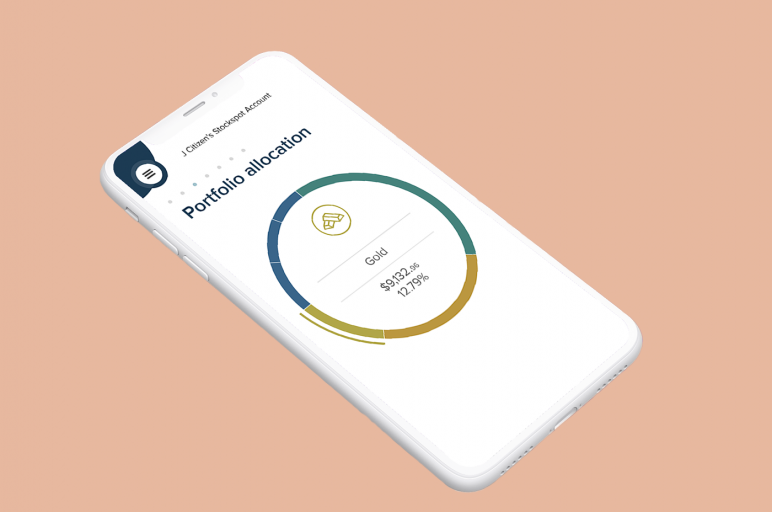The 2020 financial year has been a volatile one, but despite the turmoil of COVID-19, Stockspot portfolios still had a sixth consecutive year of positive returns.
Stockspot’s diversified portfolios averaged a +2.2% to +4.7% return, beating 99% of similar diversified funds and super options.
| 1 YEAR (FY’20) | 3 YEARS (P.A.) | 5 YEARS (P.A.) | TOTAL RETURN | |
| Topaz (High growth) | 2.2% | 8.5% | 7.7% | 71.4% |
| Emerald (Growth) | 2.9% | 8.2% | 7.3% | 64.8% |
| Turquoise (Balanced) | 3.9% | 8.2% | 7.1% | 61.2% |
| Sapphire (Moderately conservative) | 4.0% | 8.0% | 6.7% | 58.1% |
| Amethyst (Conservative) | 4.7% | 7.8% | 6.5% | 55.6% |
Past performance of financial products is no guarantee of future performance.
Performance compared to other funds
The Stockspot portfolios continued to have positive returns on a rolling 12 month basis. This result is better than 99% of similar diversified funds and super funds tracked by Morningstar. Each Stockspot strategy beat the Morningstar multi-sector benchmark by approximately 5% over the year.
Source: Stockspot, Morningstar website comparison group of investment funds across growth, balanced and moderate multi-sector categories to 30 June 2020. Stockspot Amethyst, Turquoise and Topaz portfolios
How our portfolios outperformed
In a year when most super funds suffered their worst year in a decade, Stockspot’s steady performance was underwritten by three factors:
- Our allocation to gold and government bonds helped to protect clients from 50%-80% of the market falls.
- Rebalancing at the right time added between 0.6% and 1.1% in portfolio returns.
- Selecting the most suitable low-cost ETFs enabled each asset class within the portfolio to outperform most active managers.
Read more about these factors in our post about how we outperformed Vanguard.
Index investing outperforms active strategies
Index (passive) investing continues to outperform active strategies, even in 2020, which was the most volatile year since the 2008 Global Financial Crisis.
The SPIVA March 2020 scorecard showed that 61% of Australian share market active managers underperformed the index over the first quarter of 2020.
History shows indexing works better than active investing in both up and down markets.
Automatic rebalancing leads to returns
Stock picking or market timing can’t protect you when markets fall. That’s why it’s important to have an investment strategy that incorporates an immediate response to changing market environments.
During the market turbulence of March, we automatically rebalanced client portfolios and bought more shares to take advantage of low prices. Automated rebalancing negated any potential human error and added to our returns.
Gold as a defensive asset
Gold as an investment can cause some debate.
However, the value of gold is in its very low or negative correlation with most other investment assets. This means it often moves in a completely different direction to shares.
Essentially gold is a defensive asset with two important qualities:
- it holds its value in a downturn; and
- it can be liquidated easily in a stressed market.
This is a rare quality for an asset and allows risk reduction within a portfolio – without jeopardising overall performance.
This is the reason we increased our allocation to gold and government bonds in 2017, despite many fund managers (including super funds) reducing or removing these assets during this time.
Several of the larger industry super funds moved a portion of their overall fund defensive assets into illiquid unlisted assets like direct property, infrastructure and alternatives. The issue with this strategy is that listed property and infrastructure assets fell by 40% across February and March, and didn’t display the defensive characteristics of bonds and gold.
Investment predictions for the rest of 2020
Higher market volatility is likely to persist in 2020, so it makes sense to maintain a defensive allocation in your portfolio and use market dips as an opportunity to top-up or rebalance.
The coming years will continue to favour those investing into low cost portfolios of diversified ETFs.
Since active management continues to underperform as a strategy, our advice remains consistent: invest in a balanced ETF portfolio that includes growth assets like Australian and global shares, as well as proven defensive assets like government bonds and gold.




